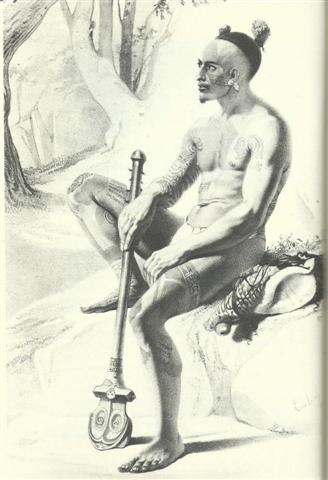The discovery of Neptune, however, might have been the event which inspired the creation of rongorongo tablets, because this discovery was made in 1846 (September 23), a year which agrees well with my estimate of 'the time of rongorongo'.
"Shortly after its discovery, Neptune was referred to simply as 'the planet exterior to Uranus' or as 'Le Verrier's planet'. The first suggestion for a name came from Galle, who proposed the name Janus. In England, Challis put forward the name Oceanus. Claiming the right to name his discovery, Le Verrier quickly proposed the name Neptune for this new planet, though falsely stating that this had been officially approved by the French Bureau des Longitudes. In October, he sought to name the planet Le Verrier, after himself, and he had loyal support in this from the observatory director, François Arago. This suggestion met with stiff resistance outside France. French almanacs quickly reintroduced the name Herschel for Uranus, after that planet's discoverer Sir William Herschel, and Leverrier for the new planet. Struve came out in favour of the name Neptune on 29 December 1846, to the Saint Petersburg Academy of Sciences. Soon Neptune became the internationally accepted name. In Roman mythology, Neptune was the god of the sea, identified with the Greek Poseidon." (Wikipedia) When could the information regarding the new planet Neptune - not visible for the bare human eye - have reached Easter? I guess the news traveled fast around our globe and Easter Island was certainly not isolated at that time: ... On the following day, 20 November 1770, Commander José Bustillo took formal possession of Easter Island 'in the name of the King and of Spain, our Lord and Master Don Carlos the third', renaming the island 'San Carlos'. Several hundred Rapanui - probably members of the Koro 'o 'Orongo tribe of the eastern 'Otu 'Iti - observed the ceremony not far from Poike's parasitic cones Parehe, Teatea, and Vai 'a Heva, on the tops of which the Spaniards had planted three crosses. Following three boisterous 'Viva el Rey!' for each cross, the land party let off three salvos of musketry, whereupon the two Spanish vessels San Lorenzo and Santa Rosalia responded with 21 cannon salutes. Spain's foremost historian of the Pacific, Francisco Mellén Blanco, has written of the event: 'The spectacle must have been awe-inspiring for the islanders. The parade of uniformed soldiers; the fluttering flags; the chaplains in their surplices chanting out the litany; the beating of drums, and the trilling of fifes must have left a lasting impression on all the natives who witnessed the procession' ... Consequently we should also notice this picture (in Alpers' Legends of the South Seas) of a chief on Marquesas:
Because I noticed the similarity with the Easter Island ua staffs and dance paddles:
In Alpers' book he writes: "Tattoed Marquesan chief. This lithograph after L. le Breton, Dumont-d'Urville's artist on the Astrolabe, shows designs that were in fashion about 1840, with a good specimen of the Marquesans' handsomely murderous club, and a conch-shell trumpet. The first Polynesians ever spoken to by Europeans (that is by Mendaña and Quiros in 1595) were men like this, and the Spaniards shot about two hundred of them, apparently for sport." |

